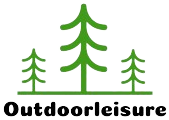Even horses have days when they should not exercise or be exercised. It’s important to assess your horse during the collecting and grooming phases of your riding day to determine whether it should be ridden.
If a horse has any serious injuries, such as an open or closed wound, lameness (difficulties walking), breathing difficulties, or any signs of colic (abdominal distress), you should not ride it.
Table of Contents
Health Problems During a Ride
A horse’s health can change during the course of a ride. If your horse suddenly goes lame while riding, or becomes too difficult to handle, you should discontinue riding.
Common Conditions and Injuries
Below are horse health conditions that warrant attention and perhaps a call to a veterinarian.
Colic
Colic is an abdominal discomfort in a horse—the horse may experience mild to severe pain. Colic can be caused by many things, including gas, impaction, and parasites in the intestinal tract. There are different varieties of colic, some of which can be fatal.
Open Wound
An open wound is an injury in which the skin is broken. Examples of open wounds include incisions, lacerations, and puncture wounds.
Closed Wound
A closed wound is an injury in which the skin is not broken but trauma has still occurred. Examples of closed wounds include contusions (bruises) and hematomas (localized collections of blood under the skin).
Horse First Aid Kit
Every stable should have two first aid kits: one for humans and one for horses. The following basic items should be included in a first aid kit for horses:
- Thermometer: To take the horse’s temperature
- Bandaging materials: To wrap a horse’s leg(s), should an injury occur
- Epsom salt: To treat foot abscesses (buildup of pus)
- Antiseptic ointment: To apply to wounds to prevent the growth of germs
- Stethoscope: To listen to the horse’s heartbeat, respiration, and gut sounds
- Hoof pick: To clean out the hooves to check for abscesses or injury
- Fly repellent cream: To keep flies away from open wounds (place the cream around an open wound, not directly on it)
- Flashlight: To use at night or to get a better look at an injury
- Knife: To cut bandaging materials, make splints, and cut a horse loose if it gets tangled in rope
- Wire cutters: To cut a horse loose if it gets tangled in a wire fence


Comments are closed, but trackbacks and pingbacks are open.